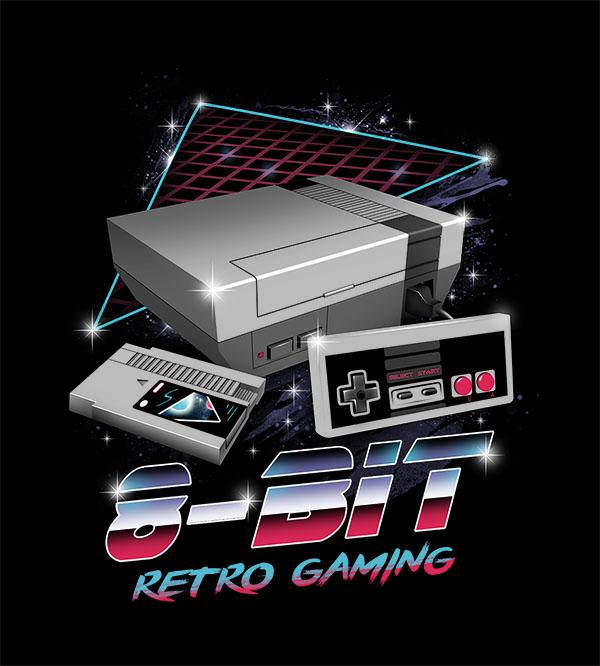To learn about the legitimacy of emulators and ROMs, we spoke to Derek Bambauer, who is a Teacher of Legislation at the University of Arizona, where he educates web law and copyright. Regrettably, we discovered that no conclusive answer really exists, since these arguments have yet to be checked in court. Yet we can a minimum of breast some misconceptions that are drifting around around.
For quality, we conducted this interview in 2017; nonetheless, there have actually been no landmark situations that would have transformed the lawful landscape because that time. In very early 2025, Nintendo shut down Yuzu, a Nintendo Switch over emulator, however in its filings it never ever declared that emulation is prohibited and they cleared up out of court.
Emulators Are Almost Certainly Legal
So allow start with the easy things. In spite of what you may have listened to, there not a lot of inquiry as to whether emulators are legal; they likely are.Read more roms download At website Articles Even Apple has actually softened on emulators by lastly allowing them right into the Application Store. An emulator is simply a piece of software program meant to emulate a video game system- yet the majority of put on t contain any kind of proprietary code. (There are exemptions, naturally, such as the BIOS documents that are called for by certain emulators to play games.)
Yet emulators aren t valuable without video game files- or ROMs- and ROMs are generally an unapproved duplicate of a video game that secured by copyright. In the United States, copyright safeguards benefit 75 years, meaning no significant console titles will certainly remain in the general public domain for decades.
Yet even ROMs exist in a bit of a gray area, according to Bambauer.
The Possible Exemption for ROMs: Fair Usage
To start: downloading a duplicate of a video game you don t own is illegal. It no various from downloading a motion picture or television show that you wear t very own.#39;It piracy. Let think I have an old Super Nintendo, and I like Super Mario World, so I download a ROM and play it, stated Bambauer.
That an offense of copyright. That relatively apparent, right? And it basically lines up with the language concerning ROMs on Nintendo website, where the business says that downloading and install any type of ROM, whether you possess the video game or not, is illegal.
But exists a lawful defense? Perhaps, if you currently own a Super Mario World cartridge. Then, according to Bambauer, you may be covered by fair usage.
Fair usage is a blurry requirement, not a guideline, Bambauer discussed. He states he could picture a couple of possible defensible situations. If I have a duplicate of Super Mario World, I can play it whenever I want, he notes, yet what I d really like to do is play it on my phone or my laptop. In this situation, downloading and install a ROM could be legitimately defensible.
You re not giving the video game to any person else, you re simply playing a game you already own on your phone, stated Bambauer. The argument would be there no market harm below; that it not replacementing for an acquisition.
Now, this isn t black and white; simply a prospective legal disagreement. And Bambauer is quick to admit it not an excellent one. This is by no suggests a slam dunk argument, stated Bambauer, Yet it by no means a ridiculous one. Besides, Nintendo can argue that by emulating the video game on your phone, rather than getting their official port of a game, they re shedding money.
Though, while there is no precedent details to gaming, there remains in other markets. In the songs sector, everyone approves that area shifting is legal, Bambauer notes. You can see where this gets complicated.
What if You Hole Your Very Own ROMs?
Tim Brookes/ How-To Nerd
A common argument online is that removing a ROM from a cartridge you possess is flawlessly lawful, yet downloading and install ROMs from the web is a crime. Devices like the Retrode allow anybody essence a Super Nintendo or Sega Genesis game over USB, and mention their legitimacy over downloads as a key selling factor. After all, tearing a CD you possess is generally thought about lawful, at the very least in the USA.
So, is tearing a ROM you possess any kind of various than downloading one? Most likely not, states Bambauer: In both instances what you re doing is producing an additional duplicate.
Currently, Bambauer can picture building an argument regarding how one is different than the other, and he admits the optics are different. Yet he doesn t assume both situations are all that distinct, legally talking. I think if the debate is, if I were a proficient designer, I could remove this and have a copy, stated Bambauer. If we presume, for a moment, that if I did that it would be fair usage, after that it shouldn t be different. Sharing ROMs Is Unambiguously Unlawful
This fair usage disagreement is potentially really vast reaching, but there are limitations. The problem comes when it no longer simply me having a duplicate, it giving other individuals a duplicate, stated Bambauer.
Consider the show business. The RIAA and MPAA have actually found extra luck going after the sites and people sharing music, as opposed to the downloaders. For ROMs it mostly works the same way, which is why sites that share video games are so often closed down.
Once you re distributing a ROM, the majority of individuals downloading it possibly wear t have legal duplicates of the game, said Bambauer. After that it is market damage, due to the fact that Nintendo should have the ability to market to those individuals.
Due to this, it might be a great idea, even if you possess a video game, to prevent downloading and install ROMs from peer-to-peer networks, where you re sharing a copy of the game as you download it.
What if a Video game Isn t Presently on the marketplace?
Many individuals suggest online that if a video game isn t currently offered on the marketplace, downloading a ROM is lawful. After all: there can t be market damage if a game is not presently available for sale in digital type. That debate might not be airtight, according to Bambauer.
On the one hand, there no amount of money that will certainly let me get a legal duplicate of this video game, claimed Bambauer. On the other side of the disagreement, there what Disney does. Disney traditional technique was to place classic movies in the vault for extensive durations. Rather than leaving films continuously on the market, they occasionally re-released them, which accumulated demand and boosted sales when that launch really came.
Video game firms might suggest they re doing the same thing with currently unreleased video games, which ROMs are driving down the potential market price. It a close case, says Bambauer, and hasn t been examined a great deal. Yet they can make that debate.
At the same time, he notes, a video game not currently being on the marketplace can possibly be a helpful part of a protection, particularly if you re downloading and install a game you currently have. I couldn t purchase a duplicate anyhow, and I already own a duplicate, said Bambauer, once more hypothetically. So it kind of like possessing a CD, and tearing it on my own.
All of This Is Primarily Hypothetical
You re probably beginning to see a pattern right here. ROMs are such a gray area due to the fact that there are prospective legal defenses on both sides- however no one truly examined these debates prior to. Bambauer couldn t point to any case legislation specifically concerning video game ROMs, and was mainly just theorizing from other areas of Internet copyright law.
If one thing is clear, however, it this: if you don t own a legal copy of a game, you don t have any right to download it (yes, even if you remove it after 24 hours, or various other such nonsense).

